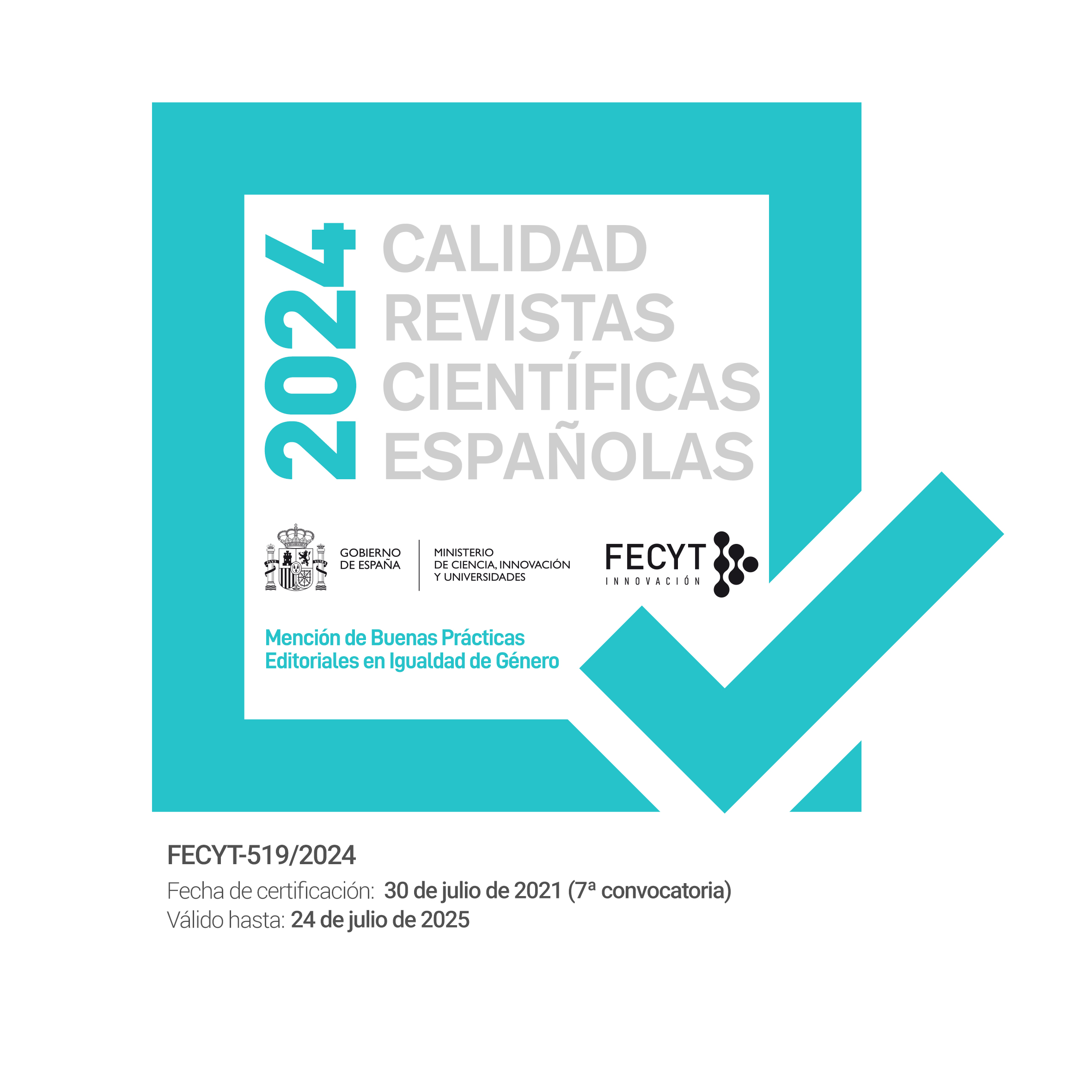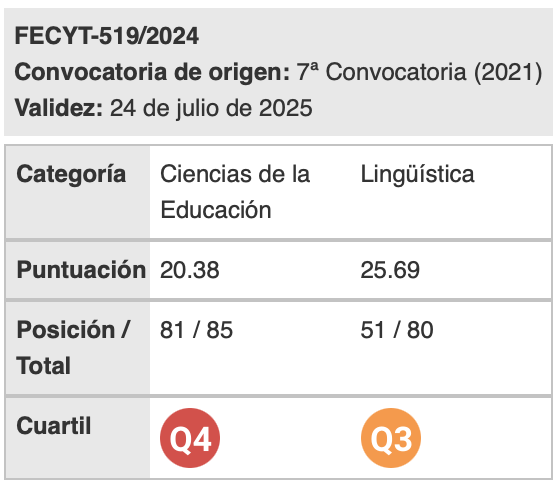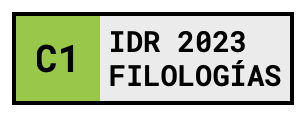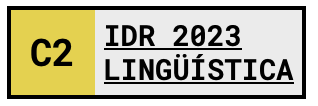A study of epistemic modality in academic and popularised discourse: The case of possibility adverbs perhaps, maybe and possibly
Palabras clave:
perhaps, maybe, possibly, adverbs, epistemic modality, hedging, popularisationResumen
This paper describes the use of perhaps, maybe and possibly in a cross- disciplinary corpus of academic and popularised scientific writing. It accounts for their higher frequency in popularised discourse by investigating their functions in detail. The analysis, conducted from various perspectives (syntactic, semantic, pragmatic and rhetorical), suggests that two factors are at work: the evidential basis for the epistemic assessment and the mode of discourse the marker is most closely associated with. The fact that perhaps and maybe express unsupported conjectures within explicative passages explains why they are less frequent in academic contexts where excessive recourse to ungrounded assumptions and to the explicative mode –which implies a knowledge asymmetry– would be harshly received. As for possibly, we show that its distribution depends on its interpretation. In its root meaning, it is equally fit for popularised and academic discourses. In its epistemic use, however, it is less frequent in research articles, like epistemic modals and other epistemic adverbs. Because it indicates that the epistemic assessment is based on the writer’s recognised expertise, its use is preferred in the most factual and uncontroversial modes of discourse, namely, narration and information, which are more typical of popularisation.
Descargas
Citas
Adam, J.-M. (1992). Les textes: Types et prototypes. Paris: Nathan.
Alonso-Almeida, F. and Cruz-García, L. (2011). The value of may as an evidential and epistemic marker in English medical abstracts. Studia Anglica Posnaniensia 46 (3), 59-73.
Biber, D., Johansson, S., Leech, G., Conrad, S., and Finegan, E. (1999). Longman grammar of spoken and written English. London: Longman.
Crismore, A. and Farnsworth, R. (1990). Metadiscourse in popular and professional science discourse. In W. Nash (Ed.) The writing scholar: Studies in academic discourse (pp. 118-136). London: Sage.
Crompton, P. (1997). Hedging in academic writing: Some theoretical problems. English for Specific Purposes, 16, 271-287.
de Haan, F. (2009). On the status of ‘epistemic’ must. In A. Tsangalidis & R. Facchinetti (Eds.) Studies on English modality. (pp. 261-284). Bern: Peter Lang.
Fahnestock, J. (1986). Accommodating science: The rhetorical life of scientific facts. Written Communication, 3(3), 275–296.
Fraser, B. (2010). Pragmatic competence: The case of hedging. In G. Kaltenböck, W. Mihatsch and S. Schneider (Eds.), New approaches to hedging (pp. 15-34). Bingley: Emerald.
Furmaniak, G. (2010). A frame-based approach to modality: The case of obligation. The Belgian Journal of Linguistics, 24, 17-35.
Furmaniak, G. (2011). On the emergence of the epistemic use of must. Sky Journal of Linguistics, 24, 41-73.
Greenbaum, S. (1969). Studies in English adverbial usage. Coral Gables, FL: University of Miami Press.
Grice, H. P. (1975). Logic and conversation. In P. Cole & J.L. Morgan (Eds.), Syntax and semantics, Vol. 3: Speech acts (pp. 41-58). New York, NY: Academic Press.
Halliday, M. A. K. (1994). An introduction to functional grammar (2nd ed.). London: Edward Arnold.
Halliday, M. A. K. and Hasan, R. (1976). Cohesion in English. London: Longman. Hare, R. M. (1970). Meaning and speech acts. The Philosophical Review, 79(1), 3-24. Hoye, L. F. (1997). Adverbs and modality in English. London: Longman.
Hoye, L. F. (2009). Modality in discourse: The pragmatics of epistemic modality. In A. Tsangalidis and R. Facchinetti (Eds.) Studies on English modality (pp. 99-132). Bern: Peter Lang.
Huddleston, R. D. and Pullum, G.K. (2002). The Cambridge grammar of the English language. Cambridge: CUP.
Hyland, K. (1998). Hedging in scientific research articles. Amsterdam: John Benjamins.
Lyons, J. (1977). Semantics 2. Cambridge: CUP.
Moirand, S. (1999). L’explication. In J.-C. Beacco (Ed.), L’astronomie dans les médias (pp. 141-167). Paris: PSN.
Nuyts, J. (2001). Epistemic modality, language, and conceptualization: A cognitive- pragmatic perspective. Amsterdam: John Benjamins.
Nuyts, J. (2006). Modality: Overview and linguistic issues. In W. Frawley (Ed.), The expression of modality (pp. 1-26). Berlin: Mouton De Gruyter.
Oxford English Dictionary for Advanced Learners (7th ed.).Oxford: OUP. Palmer, F. R. (1990). Modality and the English modals (2nd ed.). London: Longman. Perkins, M. R. (1983). Modal expressions in English. London: Frances Pinter.
Pic, E. and Furmaniak, G. (2012a). Le degré de spécialisation comme facteur de variation de la représentation du JE. In P. Frath, V. Bourdier, E. Hilgert, K. Bréhaux & J. Dunphy-Blomfield (Eds.), Res-per-nomen III: La référence, la conscience et le sujet énonciateur (pp. 193-218). Reims: EPURE.
Pic, E. and Furmaniak, G. (2012b). The Grammar of Mediation. Conference paper given at the 4th 360° International Conference “Encompassing Knowledge Mediation”, Aarhus, Denmark.
Radden, G., and Dirven, R. (2007). Cognitive English grammar. Amsterdam: John Benjamins
Ressano, N. S. (2004). Modality and modal responsibility in research articles in English. In R. Facchinetti & F. R. Palmer (Eds.) English modality in perspective: Genre analysis and contrastive studies (pp. 101-118). Frankfurt: Peter Lang.
Salager-Meyer, F. (1994). Hedges and textual communicative function in medical English written discourse. English for Specific Purposes, 13, 149-170.
Smith, C. (2003). Modes of discourse. Cambridge: CUP.
Tottie, G. (2002). An introduction to American English. Malden, Mass.: Blackwell.
Tucker, G. (2001). Possibly alternative modality. Functions of Language, 8(2), 183-216.
van Dijk, T. A. (1998). Opinions and ideologies in the press. In A. Bell & P. Garrett (Eds.), Approaches to media discourse (pp. 21-63). Oxford: Blackwell.
Varttala, T. (2001). Hedging in scientifically oriented discourse: Exploring variation according to discipline and intended audience. Doctoral dissertation, University of Tampere. available at http://acta.uta.fi/pdf/951-44-5195-3.pdf
Vihla, M. (1999). Medical writing: Modality in focus. Amsterdam: Rodopi.
Vihla, M. (2000). Epistemic possibility: A study based on a medical corpus. In J. M. Kirk (Ed.), Corpora galore: Analyses and techniques in describing English (pp. 209-224). Amsterdam: Rodopi.
White, P. R. R. (2003). Beyond modality and hedging: A dialogic view of the language of intersubjective stance. Text, 23(2), 259-284.
Descargas
Publicado
Cómo citar
Número
Sección
Licencia
Aquellos autores/as que tengan publicaciones con esta revista, aceptan los términos siguientes:
- Los autores/as conservarán sus derechos de autor y garantizarán a la revista el derecho de primera publicación de su obra, el cuál estará simultáneamente sujeto a la Licencia de reconocimiento de Creative Commons que permite a terceros compartir la obra siempre que se indique su autor y su primera publicación esta revista.
- Los autores/as podrán adoptar otros acuerdos de licencia no exclusiva de distribución de la versión de la obra publicada (p. ej.: depositarla en un archivo telemático institucional o publicarla en un volumen monográfico) siempre que se indique la publicación inicial en esta revista.
- Se permite y recomienda a los autores/as difundir su obra a través de Internet (p. ej.: en archivos telemáticos institucionales o en su página web) antes y durante el proceso de envío, lo cual puede producir intercambios interesantes y aumentar las citas de la obra publicada. (Véase El efecto del acceso abierto).

Revista de Lenguas para fines específicos is licensed under a Creative Commons Reconocimiento-NoComercial-SinObraDerivada 4.0 Internacional License.






















